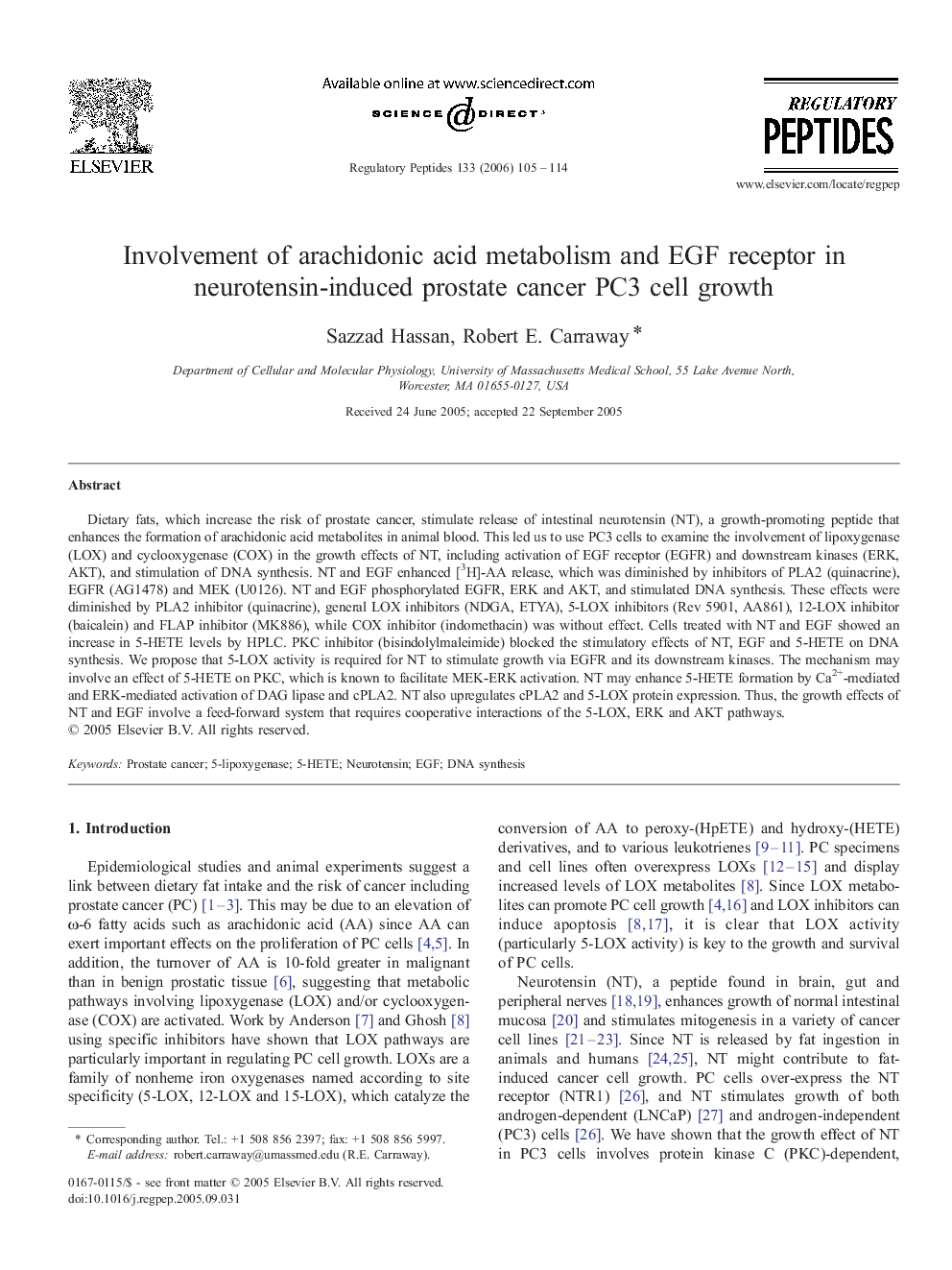| Article ID | Journal | Published Year | Pages | File Type |
|---|---|---|---|---|
| 2023423 | Regulatory Peptides | 2006 | 10 Pages |
Dietary fats, which increase the risk of prostate cancer, stimulate release of intestinal neurotensin (NT), a growth-promoting peptide that enhances the formation of arachidonic acid metabolites in animal blood. This led us to use PC3 cells to examine the involvement of lipoxygenase (LOX) and cyclooxygenase (COX) in the growth effects of NT, including activation of EGF receptor (EGFR) and downstream kinases (ERK, AKT), and stimulation of DNA synthesis. NT and EGF enhanced [3H]-AA release, which was diminished by inhibitors of PLA2 (quinacrine), EGFR (AG1478) and MEK (U0126). NT and EGF phosphorylated EGFR, ERK and AKT, and stimulated DNA synthesis. These effects were diminished by PLA2 inhibitor (quinacrine), general LOX inhibitors (NDGA, ETYA), 5-LOX inhibitors (Rev 5901, AA861), 12-LOX inhibitor (baicalein) and FLAP inhibitor (MK886), while COX inhibitor (indomethacin) was without effect. Cells treated with NT and EGF showed an increase in 5-HETE levels by HPLC. PKC inhibitor (bisindolylmaleimide) blocked the stimulatory effects of NT, EGF and 5-HETE on DNA synthesis. We propose that 5-LOX activity is required for NT to stimulate growth via EGFR and its downstream kinases. The mechanism may involve an effect of 5-HETE on PKC, which is known to facilitate MEK-ERK activation. NT may enhance 5-HETE formation by Ca2+-mediated and ERK-mediated activation of DAG lipase and cPLA2. NT also upregulates cPLA2 and 5-LOX protein expression. Thus, the growth effects of NT and EGF involve a feed-forward system that requires cooperative interactions of the 5-LOX, ERK and AKT pathways.
